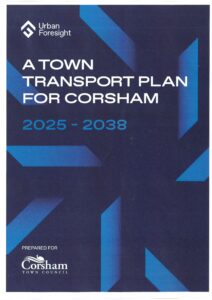A widely promoted online survey was carried out from 15 July to 5 August resulting in 1,511 responses. Thank you to all who took the time to complete the survey. The key findings of the survey include:
- 39.58% of respondents would use the station more than once per week, with 41.23% using it once per week or less, but over 12 times per year.
- Only 1.26% of participants said they would be unlikely to use Corsham Station.
- Participants’ most frequent journeys by rail to/from Corsham would be leisure trips (41.89%) followed by commuting (33.55%).
- By far the most frequent places to travel to/from Corsham Station stated by respondents were Bristol or Bath at 65.59%, with Reading, London and South East England in second place at 17.27%.
Over 1,000 participants also shared comments and suggestions as part of the survey. A sample of these anonymous responses include:
‘Having a station in Corsham would revolutionise the town and make sustainable travel to work and holidays much nicer and more cost effective. (I’d no longer need the car nearly as much!)’
‘Would simplify my commute immensely and, as a young woman without a car, would mean I can travel easier without the worry of relying on bus timetables and traffic delays to work and study.’
‘I would be able to visit my friends and family more often. It would free me up to be able to go to places and enjoy a leisurely time rather than have to worry about driving home. I would visit more places as driving to them means I say no to days out.’
‘I am disabled and reluctant to drive to Chippenham to get a train because of the hassle. I have not been on any form of public transport for the past five years but would love to get away to explore more parts of England.’
‘It would be a benefit all round. Even if only a few trains ran a day, it would massively improve the lives of those who can’t drive! I can’t drive for medical reasons and the lack of a station makes things difficult. A station would also reduce car traffic which would be a massive bonus.’
The information gleaned from the survey will be used as part of the Strategic Outline Business Case which is due to be submitted to the Department for Transport later this year. If the project passes the SOBC stage, it would then move to the Outline Business Case (OBC) stage, which looks in more detail at things such as design, planning, access, operational feasibility and demand forecasting. The final stage is the Full Business Case (FBC), and if the project passes all these key stages in a timely manner, it is estimated that work to build the new station could begin in 2026 and be completed and operational by 2028.
This website will be updated as the situation changes.





